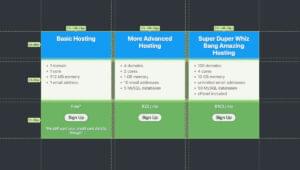On June 5th 2014, the PHP group announced the fourth and final beta of the 5.6 version. This milestone ends the beta program and begins the RC program (currently planned for June 19th), which will from now on focus exclusively on making sure the version is stable enough for release. As is customary with a beta program, no new features were added since beta 1 – all the releases were bugfix and improvement patches only.
Changes
Some five months ago we published a list of upcoming new 5.6 features, and since then the PHP group has created a more approachable summary of the changes than one that can be seen in the cryptic changelogs. The list, also called the 5.6 migration guide, is an already very useful work in progress and contains a simple demo of every new feature that matters – you can check it out here.
If you’re interested in seeing all the bugfixes through the betas, you can read the changelog on Github.
Things we haven’t covered in our original post but which have been added in the meanwhile are:
Exponentiation
In a nutshell, “exponentiation via **” it’s an operator which lets you easily calculate a number to the power of another number. However, the order of execution might be counter-intuitive to some. The example states:
$a = 2**3; // $a = 8, i.e. 2^3
$b = 2**3**2; // $b is 512Most people new to the exponent operator will assume the second line groups operations as such:
(2**3)**2which would come down to 8**2 which is 64, and not 512. However, the exponential operator here uses the following preference:
2**(3**2)which comes down to 2**9, and that is 512. Thus, the exponent operator executes from right to left, as is the case in other languages (e.g. Python).
Default UTF-8
The default character encoding has been set to UTF-8 and uses the default_charset ini setting / function.
In an era of super-wide audience reach, having UTF-8 support is of utmost importance. Defaulting to UTF-8 skips several steps developers have had to do with mbstring and iconv previously (now deprecated) in order to support not only reading and writing accurate UTF-8 database data (you still need to configure your database for UTF-8, since it doesn’t have anything to do with PHP) but also to be able to both code on a system with a default local charset, and to display the webpage properly in the browser. With this, there’s no longer any need to set default_charset in the ini settings – it’s set for you as soon as you install PHP.
php://input is reusable
One detail we haven’t mentioned in the last post is the fact that php://input is now reusable – contrary to what the documentation page says. This means you can read it several times now, and it always reads from the same data, which has resulted in a significant memory usage reduction.
GMP operator overloading
GMP, a library we briefly covered before, now supports operator overloading. Previously, you had to use gmp_* functions to, for example, add two GMP objects/resources together (i.e. gmp_add) – now, you can use simpler expressions like +, just like you would with regular numbers.
We are looking for in depth GMP tutorials and real world use cases, so if you’d like to contribute, let us know.
Security upgrades
The function hash_equals() was added, the gost-crypto hash algorithm was introduced, and various SSL/TLS enhancements were implemented.
We won’t be going into detail with these – they’re both outside the scope of this quick overview and complex enough to warrant their own post (care to write it? Let me know), but you can read the details on their respective links.
pgsql async
Pgsql, the extension for PHP’s communication with the PostgreSQL database, now has support for asynchronous operations, joining MySQL in this regard. Asynchronicity might not be exactly what one would assume, so some experimentation is warranted before putting your faith into these operations, but it’s nice to know it’s there nonetheless.
You can see full examples of using PostgreSQL asynchrounously in the tests.
Other changes
These new features aren’t the only thing you should keep in mind – the new docs have several very handy sections helping you transition properly.
BC breaks
The Backwards Incompatible Changes list will tell you about all the areas in which your old apps will fail if used in the same manner they were used up until version 5.6. Some of them are:
- GMP resources are now objects, which will break previous usages of
is_resource - mcrypt requires valid keys and IVs
- json_decode is more strict about upper/lower case on “true”, “false” and “null”
- and more
Deprecated Features
The deprecated features page lists all the features that will now trigger the E_DEPRECATED error in your code. In this version, they’re calls from incompatible context, $HTTP_RAW_POST_DATA and always_populate_raw_post_data, but one should be mindful of previously deprecated features too – most notably the mysql_* functions of the mysql extension, which is now officially deprecated in its entirety and shouldn’t be used.
Changed Functions
The changed functions list will describe in which way certain functions have changed when compared to their iteration in the previous version. Most notably, they’re the crypt function which now raises a notice if you omit the salt param, the source of mcrypt_create_iv() which now defaults to MCRYPT_DEV_URANDOM, some PostgreSQL functions no longer being experimental, and more.
New Functions
Similar to the new features page, the new functions page lists all the new core and extension functions you can use. For example, the ability to set a password for a Zip archive we’ve mentioned in the last new features post is mentioned on this page.
OpenSSL changes
The OpenSSL changes were so numerous in this release, they warranted their own separate page: http://docs.php.net/manual/en/migration56.openssl.php
This page contains everything from certificate and fingerprint change instructions and explanations to SPKI and more. If you’re a security buff, you’re encouraged to give this a thorough read, and after you do, you’re encouraged to write an in-depth explanation for us :) Let us know if you can make this knowledge reach more eyes in a style appropriate for a wider audience.
Other Changes and Global Constants
The last two pages present other changes in extensions that didn’t fit any other category, and an exhaustive list of new global constants available – albeit without any detailed explanation.
Conclusion
If you’re moving from any other previous version of PHP to a newer one, please pay attention to the migration guides available for all such jumps: http://docs.php.net/manual/en/appendices.php
These guides will cover all major and minor version differences you should know about, and will help you prepare your environment for a potential switch to the latest and greatest.
The end of beta for 5.6. marks a new, important milestone in the PHP community. Several important new features await us as we transition to this new version, and the core developers encourage everyone to test this version and report feedback on any problems they might encounter. The following couple of months will be dealing with Release Candidate versions exclusively, and with the very next version (scheduled for June 19th), it’s safe to say you can start testing 5.6. in production. In the meanwhile, download the beta and start testing!
Bruno is a blockchain developer and technical educator at the Web3 Foundation, the foundation that's building the next generation of the free people's internet. He runs two newsletters you should subscribe to if you're interested in Web3.0: Dot Leap covers ecosystem and tech development of Web3, and NFT Review covers the evolution of the non-fungible token (digital collectibles) ecosystem inside this emerging new web. His current passion project is RMRK.app, the most advanced NFT system in the world, which allows NFTs to own other NFTs, NFTs to react to emotion, NFTs to be governed democratically, and NFTs to be multiple things at once.



































































































